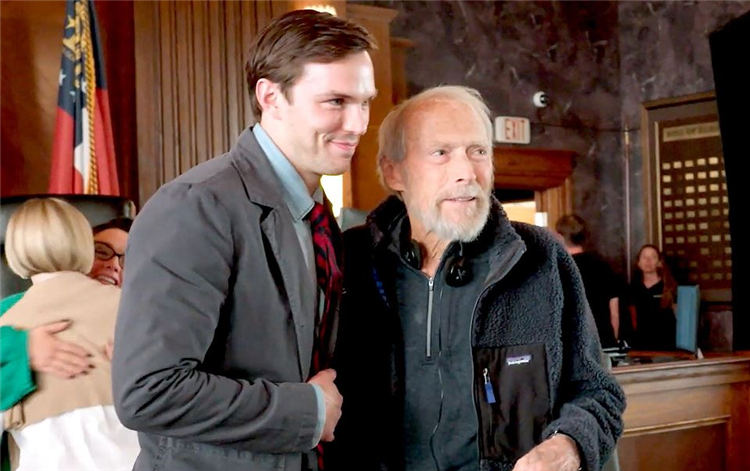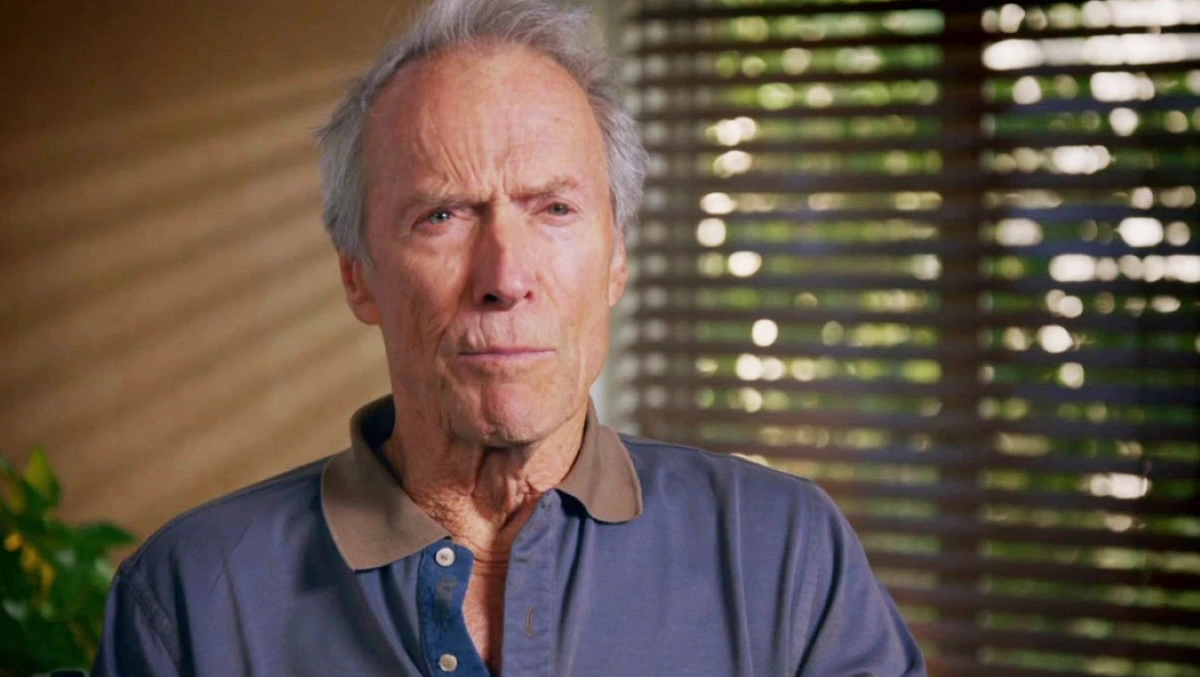Ever since establishing himself as cinema’s toughest, coolest, and calmest hombre as the Man with No Name in Sergio Leone’s Dollars Trilogy, Clint Eastwood has been undeniable. Whether he’s acting in front of the camera or directing behind it, his movies have tallied an incredible worldwide gross of $3.8 billion. Now, at the age of 94, Clint’s career is finally winding down towards its end, but not in the type of way anyone expected.
Golden Globes, Oscars, and honorary Palmes D’or—none of these prestigious awards have prevented Clint Eastwood’s longtime studio partnership with Warner Bros. from seemingly coming to an inglorious conclusion. Recently, the infamous Hollywood studio decided to grant Clint Eastwood’s latest (and potentially final) film, Juror #2, a limited theatrical release, which will make it difficult for many of Eastwood’s fans to see the movie in theaters themselves. How has this longtime partnership fractured to the point that it’s come to this, and is there any hope that Juror #2 might get the release it actually deserves?
What Is Juror #2 About?
Doing the Right Thing Isn’t Always Cut and Dry, Just Ask Warner Bros.
Juror #2 stars Nicholas Hoult as a successful magazine feature writer named Justin Kemp. From a certain perspective, Kemp’s life couldn’t possibly be going any better. His beautiful wife, Ally, played by Zoey Deutch, is in the third trimester of her (admittedly high-risk) pregnancy, and Justin is doing everything he can to support her through the process, including decorating their home’s spacious nursery as a surprise at the beginning of the movie.
As rendered by Nicholas Hoult, Justin Kemp seems like the perfect guy. In the opening moments of Juror #2, he comes across as funny, kind, and thoughtful to others. The audience can’t help but root for him, an emotion complicated by the revelation that, earlier in his life, Justin was in a far darker place.
Prior to getting his life together, Kemp was a self-destructive alcoholic. A year or so ago, Justin found himself at a local roadhouse, staring down a shot of whiskey. While Justin was eventually able to avoid temptation and refuse the drink, that night, while driving home in a rainstorm, he hit a deer that then presumably ran off into the woods. Or at least, that’s what Justin thought had happened.
As you might expect from a movie titled Juror #2, Justin Kemp soon finds himself sitting in the jury box for the murder trial of a local delinquent named James Sythe (played by Gabriel Basso). Sythe has been accused of killing his girlfriend, Kendall (played by Clint’s daughter, Francesca Eastwood), after an argument at a bar, the very same bar (and night) that Kemp refused to drown his sorrows. It slowly begins to dawn on Justin that it probably wasn’t a deer he hit that night; it was Kendall.
When Kemp later meets with his AA sponsor and attorney, played by Kiefer Sutherland, it becomes clear that if Justin admits to what happened, he could spend as many as 30 years behind bars for vehicular manslaughter. Such a decision would leave his soon-to-be-born son without a father. This, of course, leaves Justin Kemp with a choice. Does he lead his fellow jurors toward a conviction against James Sythe, or does he tell the truth? As with any truly fantastic drama, the deck seems stacked against everyone involved. And make no mistake, Juror #2 is excellent, which makes what’s happening to it all the more confusing.
Why has Warner Bros. Not Given Juror #2 a Wide Theatrical Release?
A Few False Steps Have Led to Unnecessary Reprisal

Broadly speaking, Clint Eastwood’s entire filmography is unimpeachable. Yes, there have been misses along the way – many of which have come more recently than not – but the man’s incredible track record as an actor and director should never have allowed his longtime studio to marginalize him like this. For the past few weeks, rumors have been circulating like wildfire that Warner Bros. has been planning on burying Juror #2 for reasons that have nothing to do with the quality of the film itself.
Instead, rumor has it that Warner Bros. is (essentially) punishing Clint Eastwood for the underperformance of his last few movies, in particular, his most recent film, Cry Macho. In 2022, The Wall Street Journal profiled the company’s then-incoming CEO, David Zaslav, and revealed that the executive had admonished his staff for green-lighting Cry Macho, which earned a little over $10 million on a $30 million budget. According to reports, when Zaslav’s co-workers pushed back and referenced Clint’s legendary nearly 50-year partnership with the studio, Zaslav responded with a Jerry Maguire quote, saying,
“It’s not show friends; it’s show business.”
For what it’s worth (and it’s worth a bit), that quote doesn’t emanate out of Tom Cruise’s titular idealistic hero in Jerry Maguire but is instead stated by the movie’s corporate stooge of a villain, Jay Mohr as Bob Sugar. As another “for what it’s worth,” Zaslav later completely fumbled negotiations while attempting to renew Warner’s contract with the NBA, costing his organization dearly.
All of which is to say that business hasn’t exactly been booming under David Zaslav, and Clint isn’t the first bridge he burned. The man is also responsible for the end of Christopher Nolan’s longstanding relationship with Warner Bros., and it’s been under Zaslav’s watch that the studio has routinely shelved completed or nearly completed films just for tax write-offs.
Simply put, a movie of the quality of Juror #2 deserves a wide theatrical release based on its pedigree alone, and yet, that’s not what’s going to happen. Instead, by decree of David Zaslav, Juror #2 will pay for the sins of its predecessors by being relegated to a limited theatrical release of just a few hundred theaters.
For what it’s worth (and it’s worth a bit), that quote doesn’t emanate out of Tom Cruise’s titular idealistic hero in Jerry Maguire but is instead stated by the movie’s corporate stooge of a villain, Jay Mohr as Bob Sugar. As another “for what it’s worth,” Zaslav later completely fumbled negotiations while attempting to renew Warner’s contract with the NBA, costing his organization dearly.
All of which is to say that business hasn’t exactly been booming under David Zaslav, and Clint isn’t the first bridge he burned. The man is also responsible for the end of Christopher Nolan’s longstanding relationship with Warner Bros., and it’s been under Zaslav’s watch that the studio has routinely shelved completed or nearly completed films just for tax write-offs.
Simply put, a movie of the quality of Juror #2 deserves a wide theatrical release based on its pedigree alone, and yet, that’s not what’s going to happen. Instead, by decree of David Zaslav, Juror #2 will pay for the sins of its predecessors by being relegated to a limited theatrical release of just a few hundred theaters.
If Clint Eastwood is upset by all of this, he is, unsurprisingly, not letting his emotions show. Instead, he’s letting his absence do the talking for him. The world-famous director has completely skipped what little rollout Warner Bros. has put together for the film, including the premiere at LA’s AFI Fest in late October, and has refused to do any press. It’s almost as if he wants Juror #2’s tagline, “Justice is blind; guilt sees everything,” to speak for itself on a multitude of levels.
Is Juror #2 One of Clint Eastwood’s Best Movies?
It Might Be the Best Movie He’s Made in the Latter Stages of His Career

Those critics lucky enough to have already seen Clint Eastwood’s new film, Juror #2, have almost uniformly suggested that it’s about as good a movie as the director has made since the heights of his directorial career in the 1990s and 2000s. Some, like Adam Nayman of The Ringer, have even gone so far as to mention it in the same breath as Eastwood’s unforgettable Academy Award-winning Western, Unforgiven. Like many of Clint’s best movies, Juror #2 is the type of film that will age gracefully. Unlike those movies, Juror #2 will likely not get its due flowers immediately, thanks in large part to its limited release.
For as much praise as was heaped onto Clint Eastwood’s films in the late 20th and early 21st Century, the director has typically always been at his best when making deceptively “simple” films, and Juror #2 fits that bill spectacularly. There are few filmmakers in the world more capable of taking a conventional, straightforward story and turning it into an understated masterpiece. Juror #2 is no different.
Boasting a premise that’s somehow both pulpy and philosophical, Juror #2 operates like a combination of John Grisham’s popcorn storytelling blended with French filmmaker Robert Bresson’s total command of the frame. Like Bresson, Eastwood has always shown a talent for doing a lot with very little, and Juror #2’s success is largely a result of his remarkable restraint over the film’s form mixed with Jonathan Abram’s clever screenplay, which embraces clichés only to feint and avoid them at the last possible second.
Ultimately, Juror #2 accomplishes what every good movie should. It makes its audience perceive certain ideas from a new perspective while never forgetting to entertain them the entire time. For most of his career, Clint Eastwood has been exploring what it means to do the right thing and whether such a possibility even exists in the first place. Like all good movies, Juror #2 doesn’t answer that question directly, but it makes us think. What’s far more apparent is that Warner Bros. and David Zaslav, more specifically, don’t care about doing the right thing. If they did, Juror #2 would be seeing the same wide release as every one of Clint Eastwood’s other fantastic and legendary movies.
